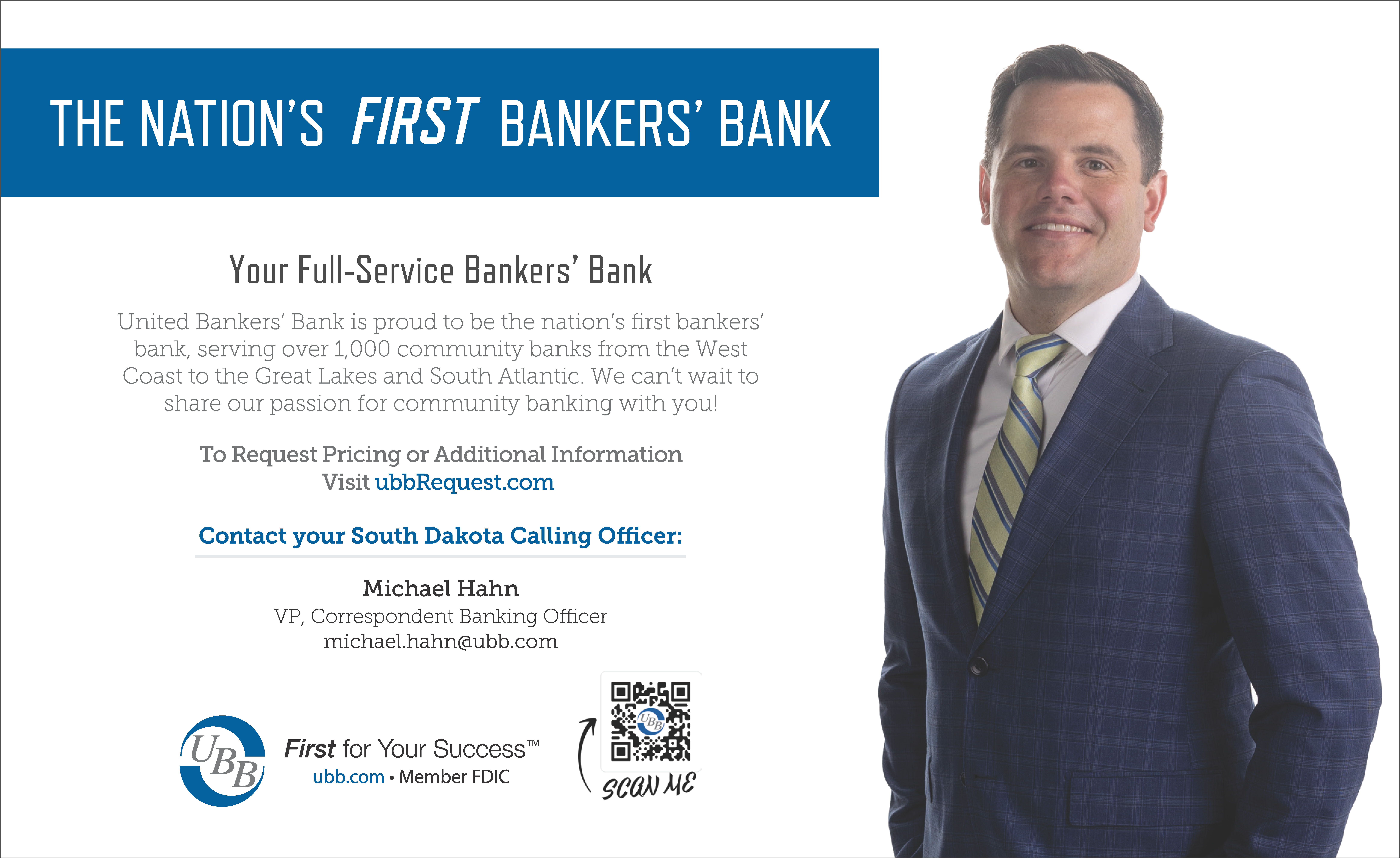- Education & Events
- Advocacy
- Products & Services
- Membership
- Resources
- SDBANKER Magazine
- SDBA eNews
- SDBA eNews Archives
- Legislative Update/Bill Watch
- South Dakota Bank Directory
- Women in Banking
- Scenes of South Dakota Calendar*
- Holiday Signs
- Regulatory Report
- South Dakota Banking Code
- Record Retention Manual
- Advertising & Sponsorship Guide
- COVID-19 Resources
- Mental Health and Crisis Prevention
- About
|
ABA Newsbytes: Mega-Retailers Versus the Public Interest
"They pointed to data showing the detrimental impact on financial inclusion efforts since the Fed first imposed a cap on debit card fees in 2011, as many financial institutions could no longer afford to offer rewards and no-fee checking accounts that appeal to lower-income customers and the unbanked,” Rosenkoetter writes. “They noted that research shows retailers pocketed savings from the fee cap rather than passing them along to customers. And they raised the alarm that further slashing the cap would halt momentum for low-cost Bank On-certified accounts, which—following a nationwide campaign championed by ABA—are now offered by hundreds of banks.” ABA Banking Journal: ABA Outlines Banking Industry's Farm Bill Priorities
ABA’s priorities in the legislation include modernizing USDA’s Farm Service Agency loan guarantee limits; clarifying bonafide operator rules for beginning farmer programs; modernizing and raising limits for the down payment assistance program; and providing robust risk management tools to allow bank customers greater stability and predictability for each growing season. ABA did, however, voice its disappointment that banks were not included in the 2024 Farm Bill language that would exempt Farm Credit institutions from the CFPB’s final Section 1071 rule and directs the Farm Credit Administration to write a rule requiring Farm Credit institutions to report only race, sex and ethnicity data to FCA annually. An amendment was offered by Rep. Frank Lucas (R-Okla.) to repeal CFPB’s final 1071 rule. The amendment ultimately was withdrawn due to jurisdictional issues. ABA said it would “continue to seek solutions” for agricultural banks that fall under the CFPB’s “burdensome” final 1071 rule. Read ABA’s statement. CISA NEWS: Your Social Security number is probably on the dark web. Should you be worried?
(NEXSTAR) – Practically every other week, news breaks of some sort of data breach. Just last month, AT&T revealed sensitive information for more than 70 million people – including their Social Security numbers and passwords – was found on the “dark web.” With so many large-scale data breaches, is your personal information already out there? “If it’s not, it will be,” said Kyle Hanslovan, CEO of cybersecurity firm Huntress. Jay Jacobs, an analyst who worked on Verizon’s data breach reporting, told NPR in 2015 he believed 60% to 80% of Social Security numbers had already been compromised by hacks – and that was before the 2017 Equifax breach affecting 148 million people. (Nexstar reached out to Verizon for an updated figure, but was told it was not tracked in their latest research.) The telltale signs of AI-generated images, video and audio, according to experts Theft of Social Security numbers is so common, the federal government won’t just give you a new one, even if you can prove yours has been stolen. You’d have to prove you’ve been experiencing “ongoing problems” because of the number being misused. And in the rare case that a new number is issued, the blank slate can create a whole host of problems, the Social Security Administration warns. But before you panic, remember that not everyone who has been victimized in a data breach will end up victimized by identity theft. “If you’re a high-value individual that maybe has a high net worth or works at a company that they can extort you, you might actually be a real target,” Hanslovan said. “For the masses though, the everyday common person, you’re more of a target of opportunity.” Simple measures, like freezing your credit, can reduce your exposure for these types of crimes of opportunity. That can prevent bad actors from using your Social Security number to take out loans or open new credit cards. AT&T offers free credit monitoring for some after data breach But most people shouldn’t spend too much time worrying about what might happen if someone gets their hands on their personal information, Hanslovan said. Instead, he advised keeping an eye on your important accounts, and make sure you’re prepared to act in the case something does go wrong. “Maybe this is just a part of life. Like for instance, influenza. Yeah, you try to get a flu shot,” he said. “But you just start to learn to live with some of this stuff. And I think that’s a great acknowledgement of maturing beyond every security incident is doom and gloom, and we are learning to live with the world where most of our data that should be private isn’t.” If you think someone is using your Social Security number and creating credit problems for you, you should report it at IdentityTheft.gov, the Social Security Administration says. You’ll go through the steps of putting a fraud alert on your credit reports, alerting the FTC, and possibly filing a police report. From there, you may need to go through several steps of damage control to clear your name. “It stinks for privacy, but it kind of normalizes just what’s happening,” Hanslovan said. “It doesn’t make it right, and it definitely doesn’t wave, you know, a company’s true fiduciary responsibilities to protect your data.” FHA Announces Cybersecurity Reporting Requirement for Approved LendersPosted: May 29 2024 Scenes of SD 2025 Calendar
We're putting together a captivating calendar for 2025, and we want YOUR talent to be front and center! Everything from landscapes, plants, and animals, to camping fun, monuments, outdoor activities, and views. And don’t forget about the winter months...we would love to see some frosty pics! Virtual Credit Analyst Development ProgramOctober 7, 11, 28, 29, November 20, 21
Having learned how to interpret and analyze a bank’s financial statements, participants will gain deeper insight into the factors affecting bank performance. Later sessions in this course will address ways in which performance may be hindered or improved by funding strategies and risk management. Ultimately, participants will be able to review a bank’s financial statements to identify strengths and weaknesses and be able to recommend changes that will lead to improved performance. In the final session of this course, participants will put what they have learned into practice. Participants will analyze a new data set, rate the bank’s performance and suggest strategic adjustments that might benefit the bank. Women of Impact Award - Nominate by August 2
Question of the Week
Q: We have a business customer that has 4 owners, each owning 25%. Three are individuals, and the last is a trust. We have always listed the trustee when a trust is involved in the ownership. Can you verify if this is correct? A: You are correct-- when an entity is owned by a trust, the guidance offered by FinCEN indicates that the bank would not be required to identify the beneficiary and could satisfy the ownership prong by collecting and verifying the identity of the trustee. Further, we offer a Compliance Minute outlining the Beneficial Ownership rule and its effects on trusts, it may be accessed here: https://compliancealliance.com/training/ca-minutes-video/beneficial-ownership-and-trusts-compliance-minute/ Learn how to put compliance management solutions from Compliance Alliance to work for your bank, by contacting (888) 353-3933 or [email protected] and ask for our Membership Team. For timely compliance updates, subscribe to Bankers Alliance’s email newsletters. SDBA eNews Archive Advertising Opportunity Questions/Comments |

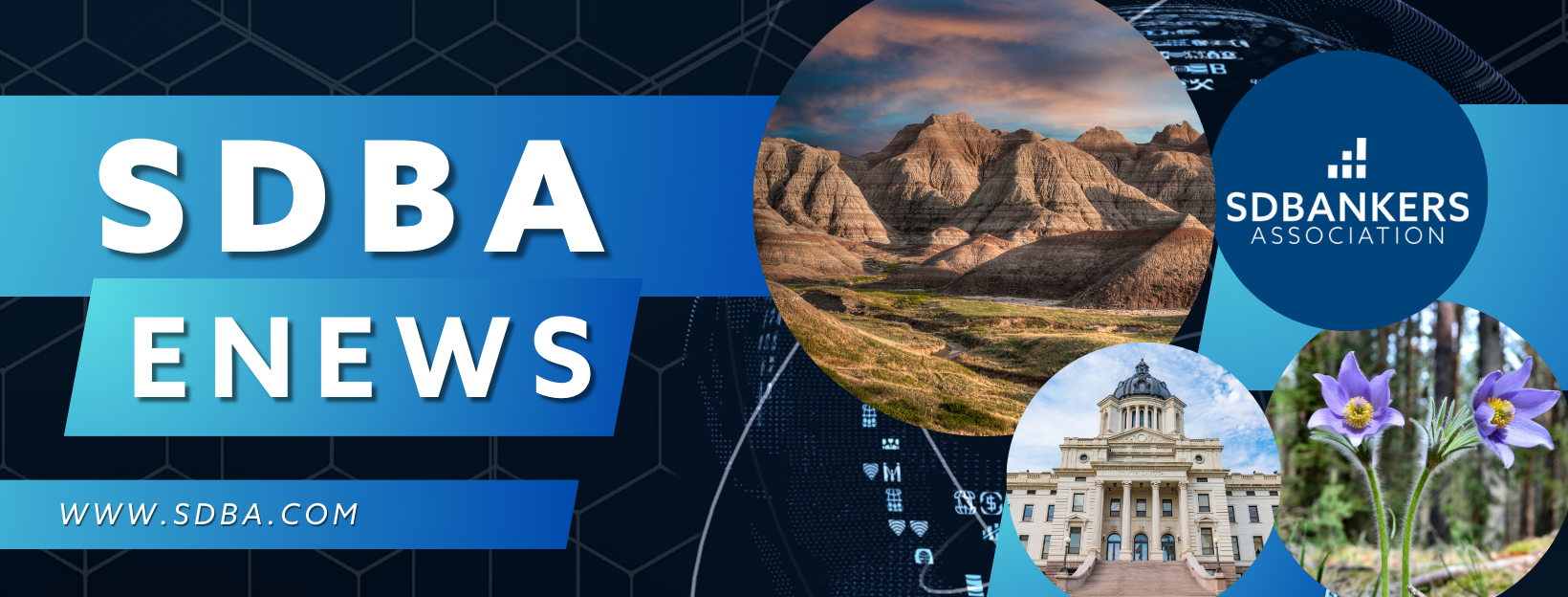
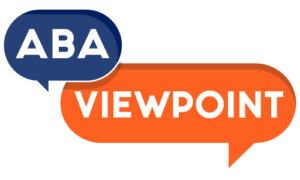 The Federal Reserve’s proposal to lower debit card transaction interchange fees for the first time since 2011 is drawing cheers from the retail industry lobby—and jeers from a wide swath of the rest of the American public, Tom Rosenkoetter, executive director of ABA’s Card Policy Council, writes in a new ABA Viewpoint column. Rosenkoetter notes that of the 202 public comment letters the Fed has so far released, 79% urged the central bank to back off the rule change. Those weighing in, from community banks to academics and economists, found plenty to criticize, he writes.
The Federal Reserve’s proposal to lower debit card transaction interchange fees for the first time since 2011 is drawing cheers from the retail industry lobby—and jeers from a wide swath of the rest of the American public, Tom Rosenkoetter, executive director of ABA’s Card Policy Council, writes in a new ABA Viewpoint column. Rosenkoetter notes that of the 202 public comment letters the Fed has so far released, 79% urged the central bank to back off the rule change. Those weighing in, from community banks to academics and economists, found plenty to criticize, he writes.
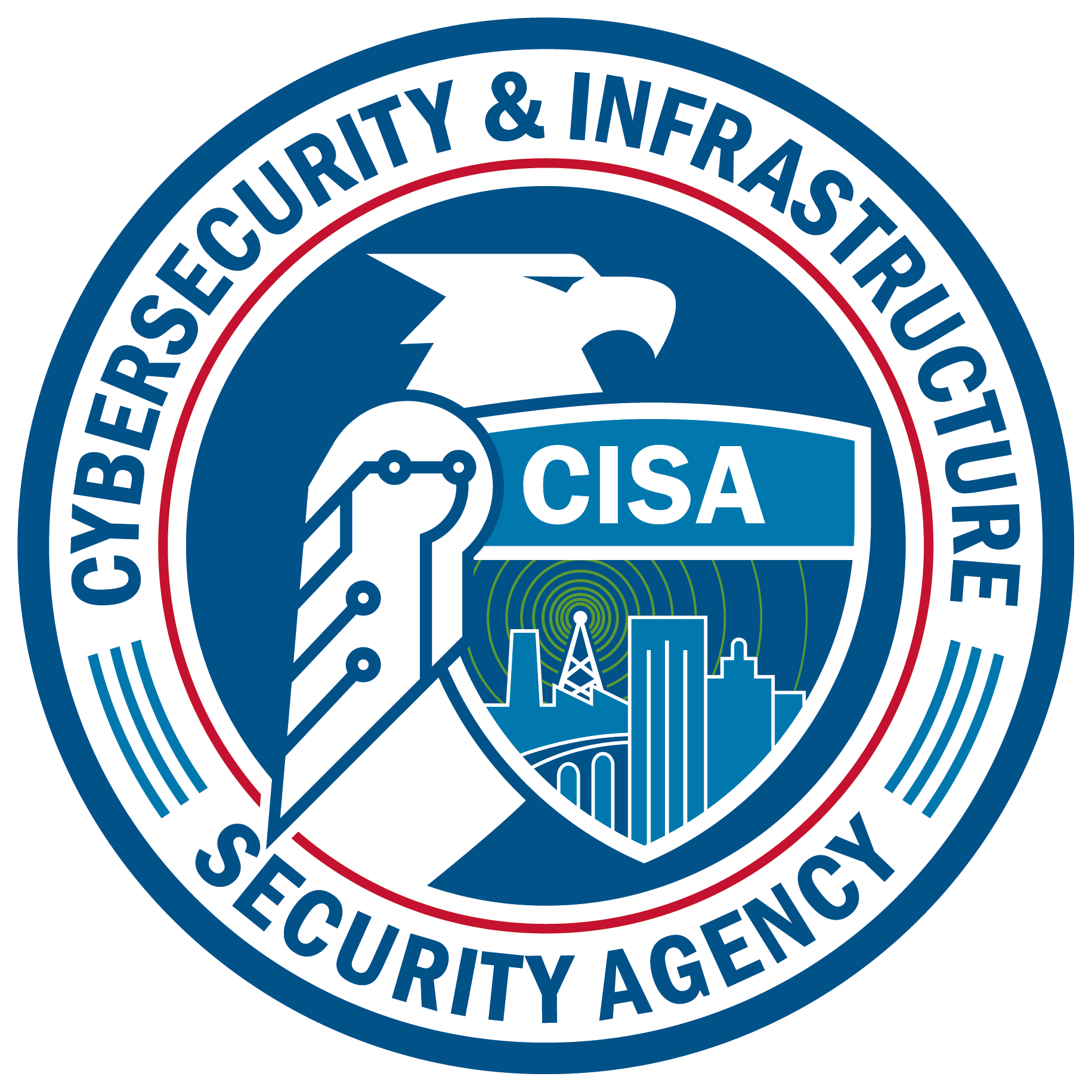
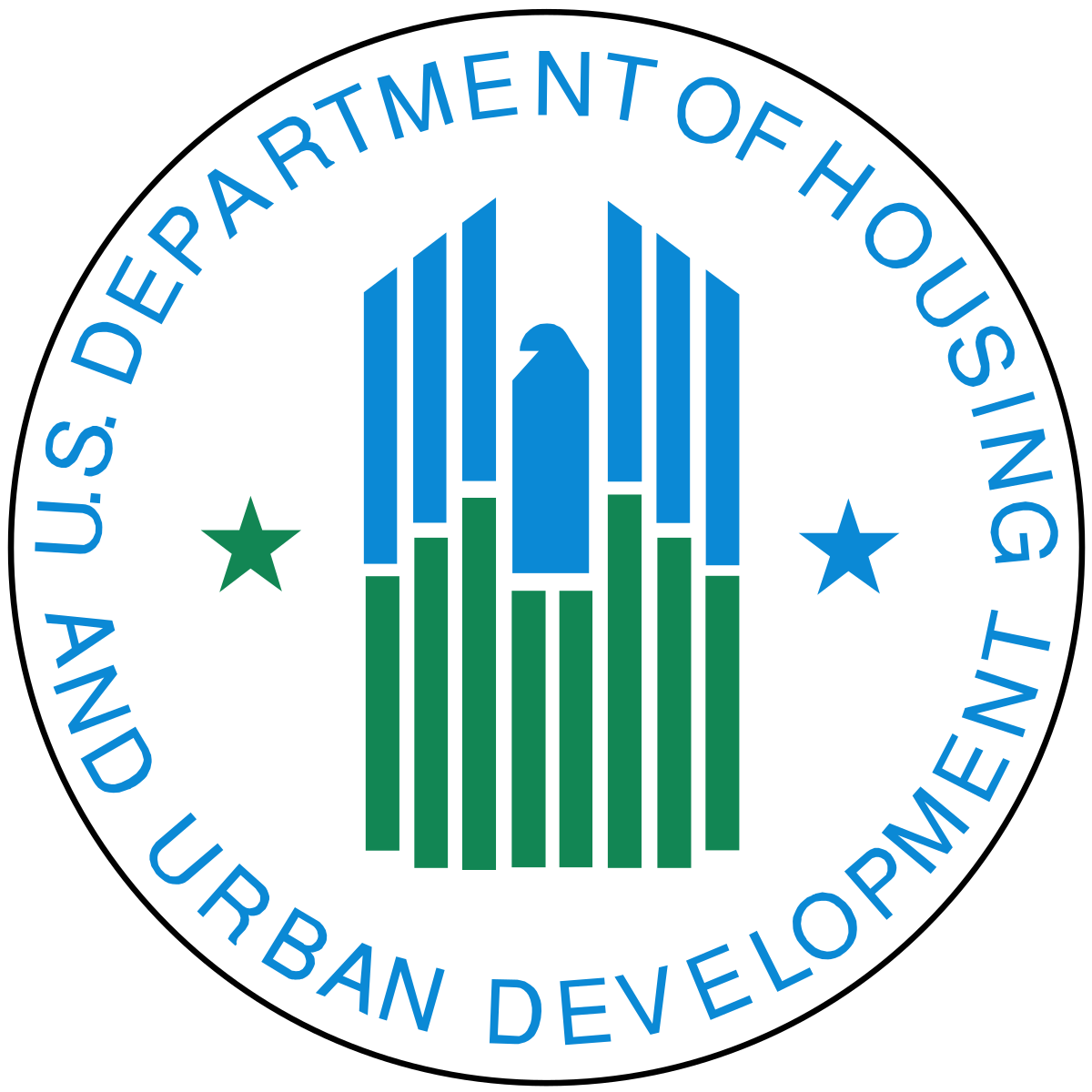 The Federal Housing Administration has issued a new policy requiring FHA-approved lenders to report a “significant cybersecurity incident” to the Department of Housing and Urban Development within 12 hours of detecting the incident. The policy change was announced in a mortgagee letter. The agency defines a significant cybersecurity incident as one that actually or potentially jeopardizes the confidentiality, integrity or availability of information within a lender’s systems, or affects the ability of the lender to meet its obligations under applicable FHA program requirements.
The Federal Housing Administration has issued a new policy requiring FHA-approved lenders to report a “significant cybersecurity incident” to the Department of Housing and Urban Development within 12 hours of detecting the incident. The policy change was announced in a mortgagee letter. The agency defines a significant cybersecurity incident as one that actually or potentially jeopardizes the confidentiality, integrity or availability of information within a lender’s systems, or affects the ability of the lender to meet its obligations under applicable FHA program requirements.
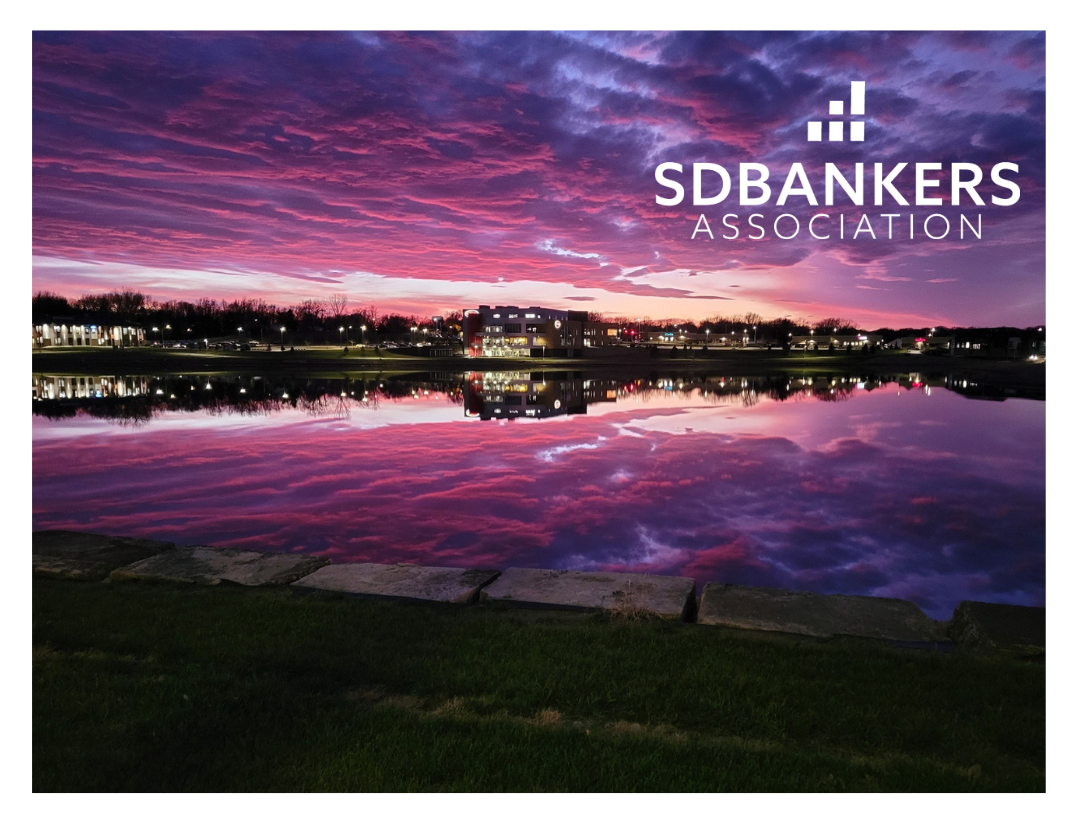
 The Credit Analyst Development Program is designed for credit analysts, credit officers, credit administrators, commercial loan officers/managers, loan review officers, branch managers and management trainees. In order to obtain the greatest benefit from this course, participants should have a general understanding of accounting and have a basic understanding of financial statement and credit analysis.
The Credit Analyst Development Program is designed for credit analysts, credit officers, credit administrators, commercial loan officers/managers, loan review officers, branch managers and management trainees. In order to obtain the greatest benefit from this course, participants should have a general understanding of accounting and have a basic understanding of financial statement and credit analysis. The SDBA Women of Impact Award has been established to celebrate South Dakota Bankers Association members who have made significant contributions and positive impacts in their organizations, communities and industry. These awards will be presented at the 2024 Lead Strong: Women in Banking event on September 26 in Sioux Falls, SD.
The SDBA Women of Impact Award has been established to celebrate South Dakota Bankers Association members who have made significant contributions and positive impacts in their organizations, communities and industry. These awards will be presented at the 2024 Lead Strong: Women in Banking event on September 26 in Sioux Falls, SD.
